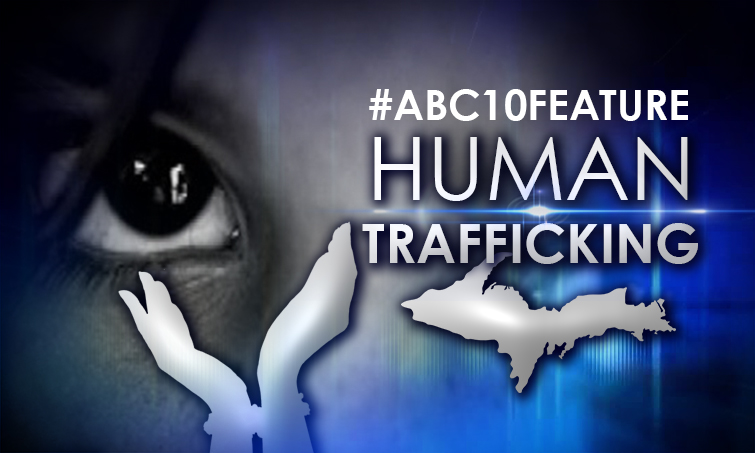Human sex trafficking in the U.P., Part II

UPPER PENINSULA — In last night’s #ABC10Feature, ABC 10’s Melanie Palmer brought you the first part of a two part series on human sex trafficking in the U.P. Tonight, we have the second part on signs of human sex trafficking and what actions are taken to help the victims.
Human sex trafficking has unfortunately been around for centuries and because of its obscurity and ambiguity, it can be nearly impossible to notice. Both local law enforcement and the Michigan State Police look for signs, but at times it can be too late.
“It’s difficult for us because we don’t see people coming and going into hotels, so it is difficult. Many times we hear about things afterwards or many times you stumble across them. People who work in the service industry, if they see a girl with a guy that just doesn’t look right, that may be what is going on and we will always go and check on anybody,” said Iron Mountain Police & Fire Services Director, Ed Mattson.
Human trafficking consists of physical and psychological control over its victims. Once in the trafficking system, many of the victims no longer have names and are just viewed as a complete object rather than a human. Victims of human trafficking show signs fairly similar to victims of domestic violence.
“They might avoid eye contact, they might avoid authority figures, they may look malnourished, they may look withdrawn socially like they can’t interact with the social norms that we have and maybe not be able to go outside or speak freely,” said Michigan State Police Community Service Trooper, Patrick Janisse.
Drugs play a large part in human trafficking, with many traffickers intentionally getting victims addicted in order for them to need to return to the specific trafficker. Drugs may also be used to subdue victims in some situations or even used as a coping mechanism for the victims themselves.
“Usually if a girl is not using drugs before she is trafficked, by the time she is being trafficked or over time, she’ll be hooked on drugs to survive and cope. Just like drugs and domestic violence are related, it’s a coping skill,” said Victim Advocate, Elisabeth Alquist.
While physical markings on a victim’s body can be a sign of human trafficking, there are less observable gestures that can be a clue. If a young girl is running away from home often, especially on the weekends, she could be involved with human trafficking. Skipping school at an excessive rate for girls between the ages of 11 and 18 can also determine if a person is in the trafficking system. Different services are offered from state to state that work on rescuing victims and rehabilitating them.
While some states have noteworthy services offered, others are vaguer. Here in the U.P., the Caring House in Iron Mountain is the only publicly displayed organization that has human sex trafficking services. More importantly than be aware of the offered services, just recognizing and understanding the seriousness behind human sex trafficking is vital.
“If we don’t know they are there, we can’t help them or get them the services they need. We can’t prosecute the individuals who are profiting from them because there is always someone making money off of somebody. It’s one of those things if people can pay attention to, if you work at a motel and something just doesn’t look right, call us and we’ll go make contact with people and we’ll make sure that it is legitimate. It’s one of those things that we need the public to help us with,” said Mattson.
“For people who don’t know what human trafficking is, they might hear it and think it’s happening in other countries or it has to involve a woman being chained in the basement. It doesn’t necessarily look like that all the time, because it is so psychological it can happen out in the open without people even realizing what it is,” said Alquist.
The official human trafficking awareness day is January 11th, a series of presentations will be put on by Michigan State Police Posts across the state to spread awareness to the public. Trooper Janisse will be holding a forum on January 12th at 6 P.M. at the Schoolcraft County Courthouse. For those trapped in this vicious cycle, it is encouraged to contact any law enforcement.
“A lot of victims are human trafficking believe they don’t have a voice and that’s because they believe that is what their life has become. If you are a victim of human trafficking, I urge you to contact your local law enforcement and the national human trafficking hotline to make your voice heard, you’re not alone,” said Janisse.
